Protests are in the air and on the streets. My own relationship to protest is ambivalent: I’ve been on many demonstrations in the role of observer but only a handful as an activist.
I love protests. The experience of being in a crowd of people who have chosen to come together for a shared purpose is like no other and the sense of occupying public space in an extra-ordinary way revivifying. I’m fascinated by how each protest is an expression of its time and place: from a travel writer’s point of view, a protest provides an easy anthropological insight into a country.
The right to protest is vital to every society with the slightest pretension to freedom. Yet I don’t fully understand the purpose of protest; perhaps it varies with each case. It seems important to ask: what is a protest for and what is it against? What is its prevailing mood and is that emotion constructive? And how far can the protest achieve what it sets out to achieve?
The protest against Trump’s visit to the UK in 2019 was fun. I went partly because I thought it would be a good day out, and it was. People dressed up. They made hats and placards bearing the witty comments that characterise the British protest tradition. There were lots of children and people of all ages. As a Londoner aware of the dangers of getting run over by a bus from the earliest age, walking down the middle of Regent Street was a joy.
The protest I witnessed in the capital of Albania the same year could not have been more different. The crowd was almost entirely male and driven by a dark Balkan rage. They wielded umbrellas with political logos, let off smoke bombs and pelted the Office of the Prime Minister with paint. I enjoyed myself thoroughly, but in a different way, and was thankful to be escorted home before the real action started.
Some student activists I also met in Tirana (short book forthcoming) had been organising some gentler protests on which the wider population were pinning their hopes. But the young organisers had wise heads on their shoulders and knew that taking to the streets doesn’t necessarily bring about change.
The scariest demo I’ve ever witnessed was in Damascus in 2004. It was the first anti-government protest to take place against the Bashar regime. Previous demonstrations had been permitted but they were on subjects the government approved of, such as Palestine. (State dis/approval is important: see the case of Britain, further down.) In authoritarian Syria there was a BIG military presence and I saw some people being bundled into a van. I wondered how long it would be before they were released - I knew people who had been imprisoned and tortured. Later, I pitched the story of Syria’s growing freedom movement to The Financial Times and was told the pitch was so good it would probably go cover but the editor couldn’t commission an outside writer because the staff would get jealous.
Protests I’ve been on in Spain and Portugal were pleasant and … a bit dull. A smallish number of people gather, have a chat and do a bit of chanting. I was getting a bored and lonely at this feminist demo in Cadiz when some local women adopted me and crowned me with a protest wreath composed of various shades of purple, the colour of Spain’s women’s movement.
The right to protest is taken very seriously in Portugal. In the second lockdown, activists put on a series of outdoor concerts in my part of Lisbon. They were classed as protests so that the police could not send people home. At a time of evaporating rights, it was important, said the organisers, to remind everyone that the street was a public place and to maintain a physical presence there.
Two years later, noisy demonstrations were taking place outside the Portuguese Parliament. Teachers were protesting about low pay amid rising inflation and high housing costs. One of them showed me her pay slip; the amount of tax she was paying appalled me. On the pavement opposite the Parliament was a fisherman who had lost his livelihood due (he said) to corruption. He had been living in a tent - the outside of which he’d converted into a boat, complete with Christmas shrine - for the past year-and-a-half in the hope that the passing politicians might do something.
Aren’t humans interesting?
In spring and summer of 2020, I went into the centre of London twice a week to join a team of people distributing food to the homeless. Day centres had shut down and the staff of the big charities were working from home, leaving hundreds of people on the street without food. (Yes, most could have a hotel room if they wanted, but that was all). And so it was that when the Black Lives Matters protests erupted I was able to witness them as I went up and down Whitehall.
They weren’t so much protests as an ongoing street party. Young people stood in groups talking, sitting on the pavements and street furniture with cans. You’d get stoned if you inhaled too deeply. I had no problem with this and smiled at them as I went past. They smiled back. They were of an age where everything in the mind, body and spirit screams: get out and explore the world! Socialise! They had been confined to their homes for months. The many police present looked on placidly. The protests went on for a month.
With the re-imposition of Covid measures on the horizon, it was getting hard to ignore the new double standard that was emerging. There had been periodic lockdown protests in exactly the same part of London, but they were treated very differently, with the media characterising all who attended as extremists. In September 2020 I decided to go and see what they were like for myself. I had one big question: would the policing style of this demo be different from that of the BLM protests? The atmosphere in British society at the time was so oppressive that I found myself doing something very strange: going to a protest in my own country in secret.
I spent several hours in Trafalgar Square, half-listening to speeches and talking to people. Those who had come out to protest were largely what you’d call working class: ordinary people on modest incomes with practical jobs. From the outset, the police used tactics I personally had never seen in Britain before, standing in lines and rushing at people in an attempt to clear the area. It didn’t work but it was intimidating: I got threatened with arrest for photographing the police in the photo below. I was impressed by the courage of the woman in front of them as she asserted her right to protest. (I have video footage of the conversation: if you want it, email me.)
In another part of the square, a man lay unconscious for reasons that were unclear. The ambulance took a very long time to arrive - about half an hour - for reasons that were also unclear. A lot of people were watching and waiting and there was a sense we were trying to protect the man. My impartiality had departed by this point: the policing style was so obviously hostile. The Met had drafted in a heavy police presence but most of the officers weren’t trained to be treating the crowd as potential or actual criminals. The younger officers surrounding the unconscious man looked uncomfortable and some protestors highlighted this new opposition of State Vs the People with calls of ‘Choose your side!’
I left feeling sad at what I’d witnessed but also relieved that I’d come face-to-face with an unpalatable truth about my country. The protest had been meaningful, and I’ll never forget the women who’d made a costume out of face masks:
Personally, I’ve been sceptical about how much effect protests have on a really determined regime ever since I marched with a million or two against the war on Iraq. ‘Make Tea Not War!’ proclaimed my favourite placard. Our leaders bombed the country to smithereens on the basis of a lie and the main person responsible is still at large and often on the media. And now, as the writer behind this excellent new project points out, new legislation is making protest more difficult in Britain. It really does seem a good idea to look to other ways to bring about change. You’ll find some suggestions here.
Can animals protest? Anyone who’s ever had a pet knows that they CAN. Below is the protest made by the fox who half-lives in my garden. No food was put out while I was on holiday and on my return I found the remnants of vulpine hedonism: fried chicken boxes, a vape and even a bottle of cheap pink alcohol. I’ve been feeding foxes a long time now - see this little book here - and got the message. Some organic porridge and homemade bread was immediately deposited in Fox Corner.
One year early this century I spent a Christmas in Bethlehem, where protest is an ongoing tradition. The demonstration I attended was a mixture of Palestinians, Western activists and clergy from the local churches. (Bethlehem is an Arab Christian town). The focus of the march was the Israeli blockade separating Bethlehem from Jerusalem; we walked late on Christmas Day carrying torches to the roadblock. It’s too long ago for me to have a digital photo but this one, illustrating a media article of 2014, captures the essence of many Israeli-Palestinian interactions. What you don’t realise from afar is how close the two populations are.
Wishing you a meaningful Christmas, wherever you are and whatever your form of protest.


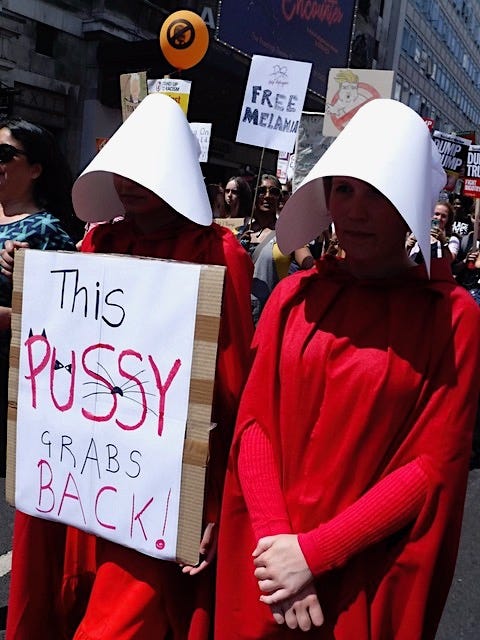


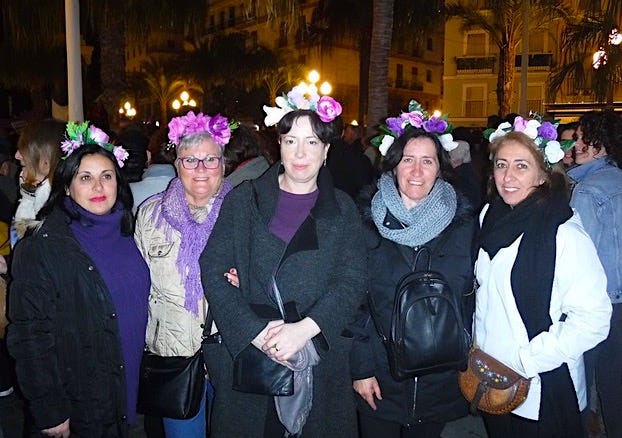


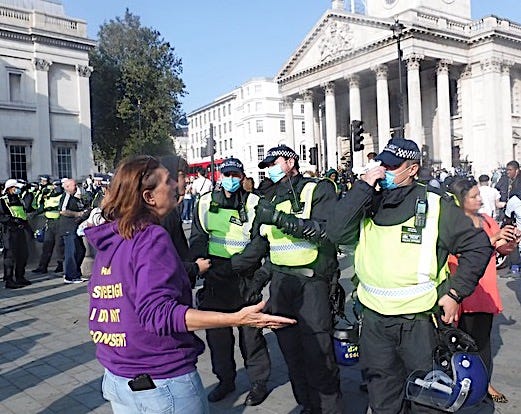
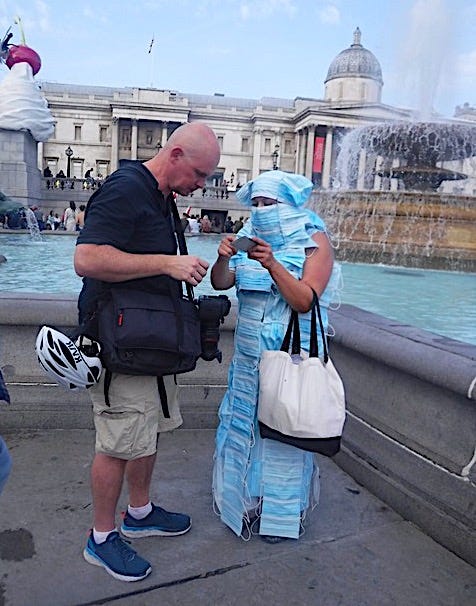


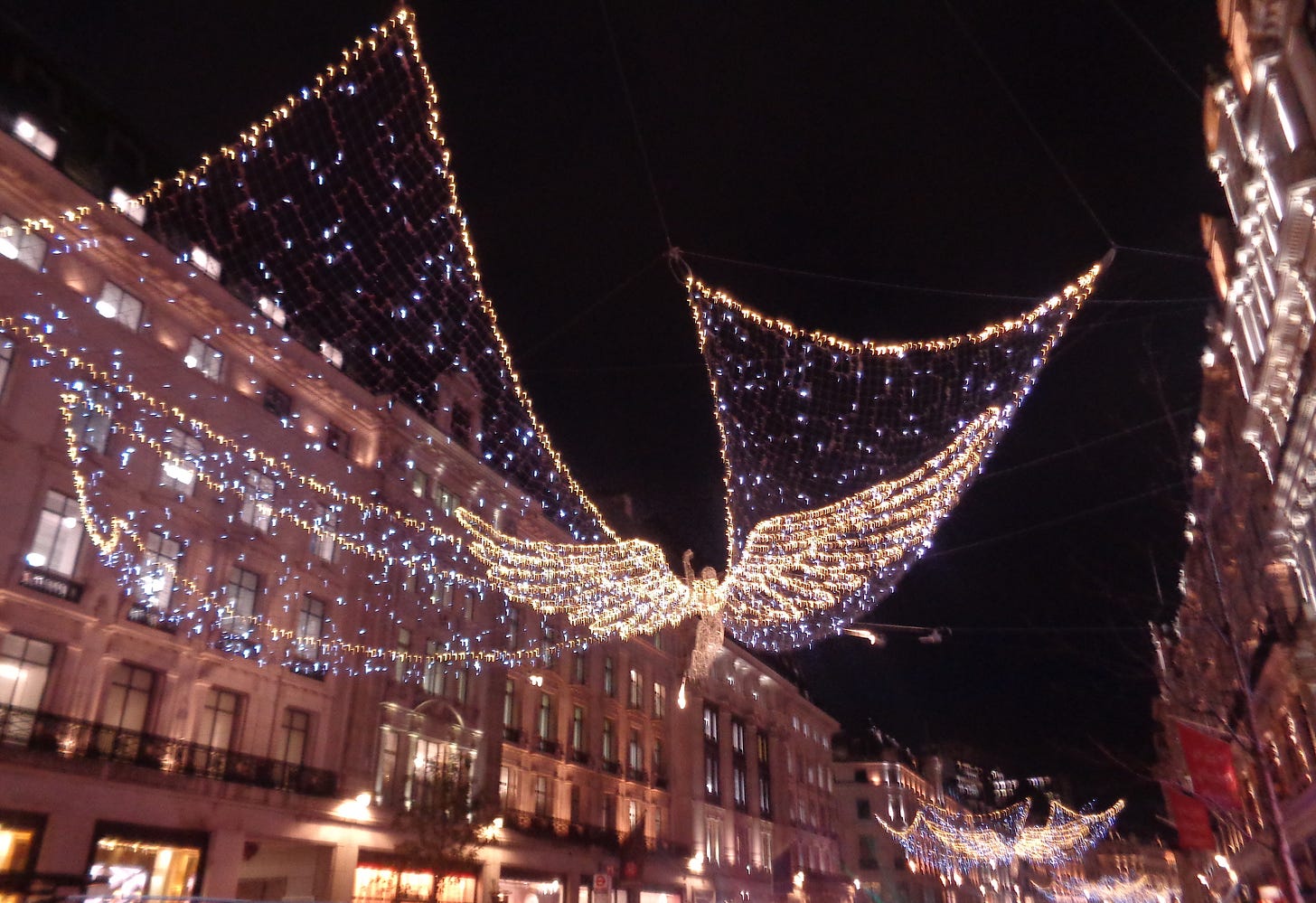
I think that policing of protests is inconsistant, in that there appears to be a tendency for the police to be more enthusiastic in the case of white people protesting. The policing seems to have been a bit lenient at some of the recent Palestine protests, and at trans events as well. Consider the case of Sarah Everard, who was murderd by a police officer in 2021, and the treatment of protesters by the police. White men protesting tend to be treated even more harshly, it seems. Here, I'm discussing ordinary working people who wish to air their feelings, not "extremists".
With regard to Just Stop Oil, although I respect their aims, I feel that in the long run that prolonged blocking of roads and disrupting public events is counterproductive. It just frustrates and costs the general public, who are under enough stress already. There's a tendency for some protesters to show a similar level of disregard for the general public as do the Government. This is likely to continue, particularly in the case of governments, unless or until the silent majority grow some teeth. This applies over much of the world. Protests are an essential part of democracy, but if any government sees that the public is getting fed up, they will be more likely to introduce repressive legislation. Protests can act as a useful gauge of strong public feeling about a particular matter for a government. I believe that XR has realised that extended road blockages can cause a backlash. Publicity for the environment or any good cause is essential, but not at any cost.
I saw a video clip showing small pop-up groups of protesters using tall boards to obscure the cameras on ULEZ vans in London; some were also dressed in tall dinosaur suits. This is a very good strategy, as there's no disturbance to speak of, no unwieldy crowds, no obstruction to the public and no damage to property. This gives the authorities limited incentive to act. In addition, people are saving money. I think this is a really good and effective strategy. This may be an isolated case, but where possible a more strategic and focussed approach to protests and other such actions in general would be helpful in the future. Publicity need not be the only aim.
Domestic actions might include withdrawing support of the BBC and its programming with built-in social engineering and indoctrination, and biased reporting. This saves money. There is plenty of great content on the Internet. Seek out and avoid using spyware passing itself off as reputable Internet or computer software. This applies to one or two very popular browsers and other software. Regarding security and privacy, the Internet of Things is a joke. The idea is to just say "NO" to toxic services, wherever they may be found. This may take thought, but the more people that stand up for themselves, the better society will become.